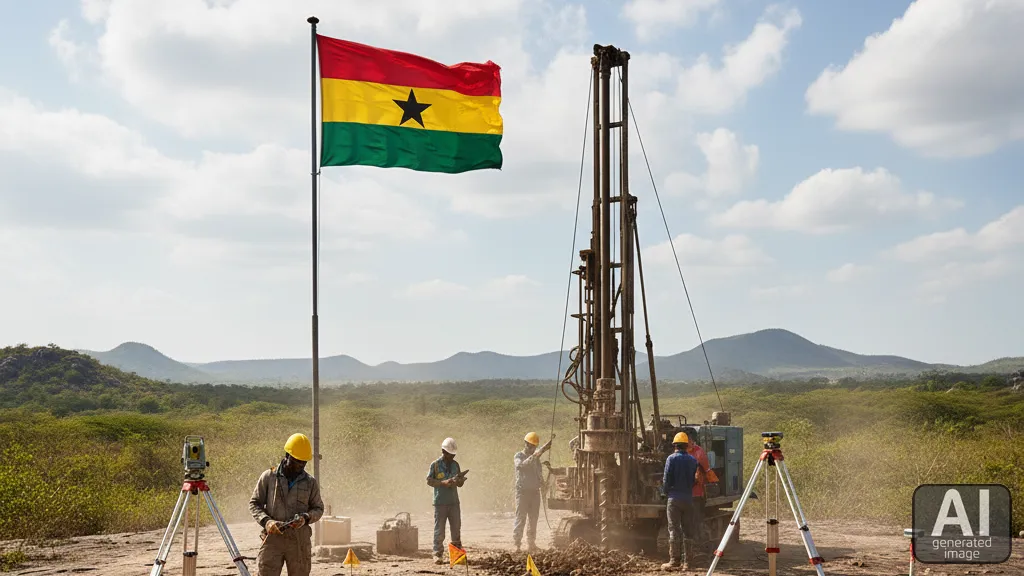Ghana Abolishes VAT on Minerals Exploration to Attract Fresh Investment

Ghana scraps VAT on minerals exploration to boost investment, strengthen mining competitiveness, and revive long term discovery pipelines.
Ghana’s recent decision to abolish the 15 percent value added tax on minerals exploration and reconnaissance marks a significant policy shift aimed at breathing new life into the country’s greenfield mining landscape. Introduced as part of the 2026 budget’s broader VAT reform agenda, this measure signals the government’s intention to lower entry barriers for investors and accelerate the discovery of new mineral resources. By eliminating the tax burden on early stage geological work, Ghana seeks to reaffirm its position as one of Africa’s most attractive destinations for mining investment.
The withdrawal of VAT applies directly to essential exploration activities, such as drilling programs, geochemical sampling, and laboratory assay analyses. These stages are often capital intensive and inherently risky, so the removal of VAT is expected to improve project economics and allow companies to allocate more funds to field operations. Industry observers note that Ghana has faced increasing competition from neighboring mining jurisdictions that already offer more favorable fiscal regimes for exploration. By aligning its policies with regional peers, Ghana aims to restore its competitiveness and stimulate a stronger pipeline of long term mineral discoveries.
This reform also fits into a broader effort by the government to promote responsible mining practices and reduce the prevalence of unregulated prospecting. Recent regulatory tightening has helped formalize artisanal and small scale mining activities, resulting in improved oversight of gold production and export channels. In 2024, Ghana recorded an unprecedented 81.7 tons of small scale gold exports valued at roughly 8.1 billion dollars, surpassing large scale output for the first time. This shift reflects enhanced compliance in the artisanal segment and the success of new export control frameworks designed to curb leakages and strengthen accountability.
Major mining operators like Newmont, AngloGold Ashanti, Gold Fields, Perseus, Zijin, and Cardinal Namdini have welcomed the VAT abolition, noting that the tax had been a long standing obstacle to project development and early stage investment. With exploration costs likely to decline and regulatory systems becoming more predictable, the country’s mining sector, which already contributes more than one third of national export revenue, stands to benefit from renewed capital inflows. Industry leaders believe the new framework will accelerate the pace of discoveries and enhance the long term sustainability of Ghana’s mineral value chain.
Overall, the removal of VAT on exploration has the potential to revitalize Ghana’s investment landscape and stimulate sustained growth in the mining sector. By lowering operational barriers and reinforcing regulatory governance, the reform could attract new entrants, strengthen investor confidence, and generate fresh opportunities for resource development across Africa. If successfully implemented, it may also position Ghana as a benchmark for fiscal and administrative reform in the continent’s mineral economies.
Mini Glossary
- Greenfield mining activity: Exploration in areas not previously mined.
- Assay work: Laboratory testing that determines the mineral content of samples.
- Artisanal and small scale mining: Informal or semi formal mining operations typically using low technology methods.
- Export controls: Regulations that monitor and manage the shipment of minerals out of a country.
- Value chain: The full range of activities involved in producing and delivering a mineral resource.
